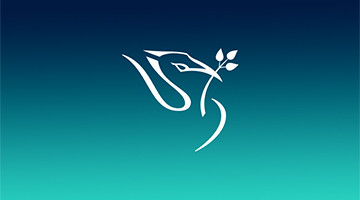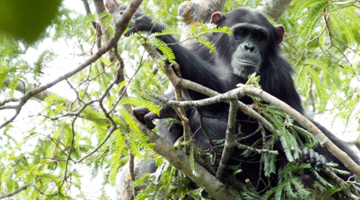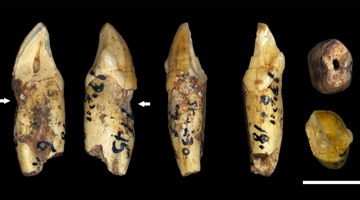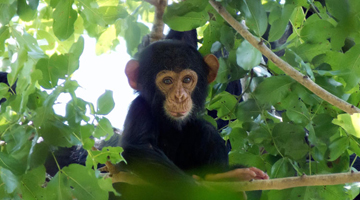Why study this course with LJMU?
- Equips you with a wide range of specialist and transferable skills required by employers related to human biology and health
- Delivered by experts in human biology and related disciplines.
- Engage and learn with subject experts and research-active staff in a welcoming and supportive environment
- Gain experience of using current and cutting-edge laboratory technologies, techniques and tools
- Develop interpersonal and intrapersonal skills required by employers and attend regularly organised employability events and networking opportunities
- Participate in residential courses and work placement opportunities in the UK and abroad to further develop skills and competencies
- This degree is available to study following a foundation year
- International Foundation Year course available offering direct progression onto this degree programme - visit LJMU's International Study Centre to find out more
About your course
The new BSc (Hons) Human Biology provides a deep understanding of the human body, its anatomy and biological processes – from the molecular level to the whole organism, and related hot topics such as health, disease and the impact of ageing on societies.
You will develop an informed and critical understanding of human biology relevant to the public and private sectors, such as academic, health care, clinical and industry. The degree offer the opportunity to develop specialist subject knowledge in one of the following themes through selecting optional modules: genetics, health and disease, nutrition, neuroscience, and microbiology and immunology.
In the second and third years you can specialise by choosing optional modules from a variety of topics. You also have the chance to undertake a short 135 hour work-based learning placement or a year-long industrial placement. This means you can put what you have learnt into practice and acquire transferable skills sought by employers.
Course modules
What you will study on this degree
Further guidance on modules
Modules are designated core or optional in accordance with professional body requirements, as applicable, and LJMU’s Academic Framework Regulations. Whilst you are required to study core modules, optional modules provide you with an element of choice. Their availability may vary and will be subject to meeting minimum student numbers.
Where changes to modules are necessary these will be communicated as appropriate.
Core modules
Principles of Human Nutrition
20 credits
20 credits
The module will help you develop knowledge of the importance of nutrition to human health introducing the subject of nutritional recommendations in terms of energy and nutrients. You will gain an overview of the chemistry, function and properties of nutrients and the consequences of inadequate intakes.
Microbiology
20 credits
20 credits
This module aims to provide a broad spectrum of knowledge about microorganisms and their activities, which will provide a foundation for microbiology-related modules at levels 5 and 6.
Anatomy and Physiology
20 credits
20 credits
This module will introduce you to both the structural organisation of the human body and how it is controlled.
Fundamentals of Scientific Research
20 credits
20 credits
This module aims to develop your research skills and covers problem-solving, scientific writing, data handling and statistical analysis.
Practical Skills for Biology
20 credits
20 credits
The aim of this module is to acquire and demonstrate theoretical and practical knowledge of laboratory and field-based methods in modern biology, with particular emphasis on familiarisation with basic laboratory techniques and equipment, ethics and safe working practices. You will acquire and develop fundamental research and transferable skills, which you will apply and train further throughout the degree and in your future career.
Genetics and Evolution
20 credits
20 credits
This module explains fundamental principles in evolution from a genetics/genomics perspective in order to explain the diversity of life, and how interactions between genes and environment result in different phenotypes. The fundamental principles of genetics and evolutionary biology will be taught with specific examples relevant to each programme cohort, and emphasis on the applications of genetics within the scientific disciplines of each programme cohort.
Core modules
Research Skills and Employability
20 credits
20 credits
This module covers all aspects of handling and analysing scientific data and the development of employability/graduate skills. You will consider the fundamentals of analysing and interpreting scientific data using examples relevant to all biosciences. Additionally, it will allow you to prepare a better career plan in science, as well as becoming self-aware of your employability skills.
Ageing
20 credits
20 credits
Through this module, students will understand the biological processes involved in ageing, and how those are different from the pathophysiological changes that result in increased vulnerability to disease and death. They will learn about how longer life expectancy in humans results in ageing populations, and the impact this has on societies, and why this poses a key global challenge in the 21st century. Finally, during practical and theoretical sessions and independent work, students will explore how the ageing process can be manipulated to modify life span, and how age-related diseases can be managed, critically evaluating the challenges associated with the development of treatments and therapies.
Physiology of Life
20 credits
20 credits
This module will provide a deeper knowledge of physiology, building upon the concepts introduced at level 4, and apply that knowledge in a health-related setting. This module builds upon the concepts learnt in level 4, developing knowledge of physiology, with special emphasis on mammalian and human physiology.
Optional Modules
Food Chain and Sustainability
20 credits
20 credits
The aim of this module is to provide knowledge and understanding of the global food supply chain and its impact on food choice, nutrition, health and the environment. The module introduces the main staple foods and food commodities; an overview of the structure of global food supply chain (including primary production, food processing and manufacturing, food distribution and food retail); an understanding of the political and ethical issues of food production and supply; as well as issues associated with food sustainability.
Immunology and medical microbiology
20 credits
20 credits
This module provides an introduction to the theoretical and practical concepts of medical microbiology and immunology. It will also provide an understanding of the principles and practices involved in the laboratory diagnosis, prevention and treatment of infectious diseases in humans.
Genes and Genomes
20 credits
20 credits
This module enables you to study how state-of-the-art genetic and genomic tools are used to understand how genes combine with the environment to control organismal phenotypes and disease states. It covers methodologies, practical applications and recent examples of the application of genetics and genomics in the fields of biology, medicine and evolution.
Developmental Biology
20 credits
20 credits
This module enables you to learn how state-of-the-art molecular and genetic tools are used to understand mechanisms that regulate the growth and development of organisms. It covers methodology and practical experiments that illuminate the molecular mechanisms that underpin developmental processes.
Human Osteology
20 credits
20 credits
This module provides an introduction to the development and anatomy of the bones of the human skeleton with a view to identify human bones and teeth, their significance within the body, the landmarks and measurements used in the field of biological anthropology.
Sandwich year - Human Biology
120 credits
120 credits
The aim is to provide students with an extended period of work experience at an approved partner that will complement their programme of study at LJMU. This will give students the opportunity to develop professional skills relevant to their programme of study as well as the attitude and behaviours necessary for employment in a diverse and changing environment. This extended placement forms a key part of a sandwich degree. All placements need to be assessed and approved prior to commencement in line with the LJMU Placement Learning Code of Practice. The Code of Practice requires students to conduct themselves in a professional and responsible manner during the placement - failure to do so may lead to the placement being terminated prematurely. Placements are normally for one calendar year on a full-time basis. Split placements of a shorter duration may be permissible. There is an expectation that a minimum of 1200 hours will be spent in the workplace.
Study Semester Abroad - Human Biology
60 credits
60 credits
The aim is to provide students with a semester of study at an approved overseas partner that will replace one semester of their LJMU programme at level 5.This is a semester of full-time study at an approved higher education institution which will replace one semester of level 5 study at LJMU. The modules to be studied must be agreed in advance, and must be an appropriate substitute for the modules being replaced. Assuming successful completion of this semester, mark-bearing credit will be awarded by the University Recognition Group. The grade conversion scale to be used will be made available in advance of the semester abroad.
Study Year Abroad - Human Biology
120 credits
120 credits
The aim is to provide students with an additional year of study at an approved overseas partner that will complement their programme at LJMU. This is an additional year of full-time study at an approved higher education institution. The modules to be studied must be agreed in advance, and must be appropriate for the student's programme of study. Assuming successful completion of this year, mark-bearing credit will be awarded by the University Recognition Group. The grade conversion scale to be used will be made available in advance of the year abroad.
Core modules
Research Project
40 credits
40 credits
The research project will be in any area appropriate to your programme of study on a topic of your choice. The module provides an opportunity for you to independently develop and demonstrate project planning, time-management and organisational inter-personal skills, along with scientific and practical working methods in a research or applied context.
Health and Disease
20 credits
20 credits
The aim of this module is to provide an understanding of a range of health and disease states at the cellular, molecular and organismal level.
Optional Modules
Nutrition Through the Lifecycle (Special Populations)
20 credits
20 credits
This module aims to provide an understanding of the nutritional requirements of population groups throughout the life-course, considering the nutritional needs of mothers and infants; children and adolescents; adults and the ageing population; as well as the nutritional concerns and priorities for other groups such as vegetarians/vegans; poverty and different cultures. The module will also discuss the major diet-related diseases and enable students to demonstrate an understanding of the evidence linking diet to disease and health. Students will also have the opportunity to enhance their practical techniques of nutritional assessment and will undertake workshops and assessment involving effective science communication to specialist populations.
Clinical immunology and medical microbiology
20 credits
20 credits
In this module, your education continues in the field of immunology and microbiology as we now focus the knowledge gained at level 4 and 5 onto the clinical aspects of disease.
Applications of Genetics in Health and Disease
20 credits
20 credits
This module provides you with an appreciation of some modern genetic and genomic techniques that are regularly used in studies of health and disease. It is recommended that students complete the level 5 module Genes and Genomes before taking this module.
Neurobiology
20 credits
20 credits
This module builds on neurobiology-related concepts taught during the level 5 Physiology of Life module. The module provides you with an insight into how molecular, cellular and organ components contribute to form the body's most complex system and how different factors can produce dysregulation of the nervous system.
Parasitology
20 credits
20 credits
This module enables you to study the biology, diagnosis, treatment and control of some of the most important protozoan, helminth and arthropod parasites of humans and domestic livestock.
Neuroendocrinology
20 credits
20 credits
This comparative module covers how the endocrine and nervous systems work together to control health and disease. Combining problem-based learning and practical sessions, you will cover topics such as sexual differentiation, sleep, stress, depression and the long-term endocrine changes caused by psychoactive substances.
Work-Based Learning
20 credits
20 credits
This module provides relevant, stimulating and career-orientated experiential learning to encourage you to develop transferable skills relevant to the work environment and to foster initiative and independence of thought.
Omics in Health and Disease
20 credits
20 credits
In this module, teaching will occur through lectures, practical sessions and workshops. Laboratory experiments and computational analysis will take place in wet and dry laboratories as appropriate. Theory sessions will take place in the lecture theatre or classroom, and these will be followed by practical and/or workshop sessions.
Your Learning Experience
Excellent facilities and learning resources
We adopt an active blended learning approach, meaning you will experience a combination of face-to-face and online learning during your time at LJMU. This enables you to experience a rich and diverse learning experience and engage fully with your studies.
Teaching is mostly via lectures and in-person laboratory practicals. Additionally, small tutorial sessions provide a forum for discussing course material more informally. You can participate in residential courses and work placement opportunities in the UK and abroad to further develop your skills and competencies You will also have progress review meetings with your personal tutor. Our approach ensures that you can easily access support from your personal tutor, either by meeting them on-campus or via a video call to suit your needs.
Work-related learning
At level 6 you have the opportunity to take a work-based learning module, incorporating 135 hours of work experience. All students are fully supported by a work placement officer. This gives you the opportunity to gain professional exposure in a relevant industry, form networks, enhance your skill set and gain valuable experience that can influence your long-term career goals and provide an employability edge. A work placement can be a refreshing break and provide inspiration for your final year research project.
Dedicated personal tutor, plus study skills support
Throughout your course you will have the support of a personal tutor who will be available to discuss course-related matters in both tutorial sessions and one-to-one progress review meetings. These meetings are to monitor your performance and identify action plans for improvement. A dedicated supervisor will also provide support during your research project.
The school is fully committed to promoting a learning environment that supports a culture of equality, diversity and inclusivity (EDI) and has a Disability Support Coordinator, an EDI Coordinator and a School EDI Working Group. Personal Tutors also play a vital role in promoting awareness of support services for students.
Assessment varies depending on the modules you choose, but will usually include a combination of exams and coursework.
Most modules are assessed by exam and coursework, and some via coursework only. All students perform differently depending on how they are assessed, which is why we use a combination of assessment methods. Exams may therefore include a range of question types e.g. multiple choice, short answer, interpretative, problem-based learning and essay. Coursework assessment could be in the form of phase tests, fieldwork/practical reports, data handling, oral presentations, poster presentations, group discussions, essays or the evaluation of your practical skills. These are based on individual assignments but some require group work.
Feedback on coursework assessments is normally provided within three weeks of submission and may be via Canvas (our virtual learning environment), face-to-face or in writing. We believe that constructive feedback is vital in helping you identify your strengths as well as the areas where you may need to put in more work.
Where you will study
You will study at the Byrom Street site in the university's City Campus in the heart of Liverpool. You will have access to first class teaching facilities, laboratories and study areas. The Avril Robarts library is within easy walking distance and here you'll find all the information you need to support your studies.
Career paths
Completing this BSc Human Biology programme will open up a vast range of career opportunities.
You can develop interpersonal and intrapersonal skills required by employers and attend regularly organised employability events and networking opportunities. Graduates will be equipped with the knowledge and transferable skill set needed for further study and career success in human biology and related health sciences. Human biologists may pursue a variety of careers in the UK and abroad, in areas such as: laboratories, scientific education and communication, public health and policy, technical service and sales support, or health service providers.
Some graduates prefer to continue their studies with postgraduate study (PGCE/PGDE, MSc, MPhil, MRes, or PhD) or pursue careers in teaching and lecturing.
Student Futures - Careers, Employability and Enterprise Service
A wide range of opportunities and support is available to you, within and beyond your course, to ensure our students experience a transformation in their career trajectory. Every undergraduate curriculum includes Future Focus during Level 4, an e-learning resource and workshop designed to help you to develop your talents, passion and purpose.
Every student has access to Careers Zone 24/7, LJMU's suite of online Apps, resources and jobs board via the LJMU Student Futures website.
Tuition fees and funding
- Full-time per year:
- £9,535
- Placement year:
- £1,905
The University reserves the right to increase tuition fees in accordance with any changes to the maximum allowable fees set by the UK Parliament. In the event of such a change, any fee increase will be subject to a maximum cap of 10% of the total course cost as originally stated at the time of your offer.
The fees quoted above cover registration, tuition, supervision, assessment and examinations as well as:
- library membership with access to printed, multimedia and digital resources
- access to programme-appropriate software
- library and student IT support
- free on-campus wifi via eduroam
Additional costs
Although not all of the following are compulsory/relevant, you should keep in mind the costs of:
- accommodation and living expenditure
- books (should you wish to have your own copies)
- printing, photocopying and stationery
- PC/laptop (should you prefer to purchase your own for independent study and online learning activities)
- mobile phone/tablet (to access online services)
- field trips (travel and activity costs)
- placements (travel expenses and living costs)
- student visas (international students only)
- study abroad opportunities (travel costs, accommodation, visas and immunisations)
- academic conferences (travel costs)
- professional-body membership
- graduation (gown hire etc)
Funding
There are many ways to fund study for home and international students. From loans to International Scholarships and subject-specific funding, you'll find all of the information you need on our specialist funding pages.
- Full-time per year:
- £18,250
- Placement year:
- £3,830
International Scholarships and payment plans
Liverpool John Moores University is committed to supporting international students by providing a range of scholarships and flexible payment plans to help students manage their tuition fees.
Scholarships
LJMU provides a variety of scholarships to support international students. Scholarships are available to self-funded students who have accepted their offer and met all the conditions outlined in their offer letter. Students must also demonstrate that they can cover living costs, travel, and other expenses associated to studying at the university. Postgraduate scholarships include tuition fee reductions and are often offered in partnership with external funding organisations.
All self-funded international students are eligible for an automatic scholarship worth up to £4,000. For more details and to view our full list of scholarships, visit the international scholarship webpages.
Deposit
All students must pay a £5,000 deposit before they can receive their CAS letter.
For more information view our deposit page.
Tuition Fee Payment Plan
After paying their £5,000 deposit, students have the option to pay their fees in full or in three equal instalments minus any internal scholarships and discounts. There are two payment options available for international students. You can either pay your tuition fees in full before enrolment or opt for a payment plan. With the payment plan, you can pay your fees in three instalments after making your £5,000 deposit. The first instalment is due before enrolment.
All payments should be made through Flywire. Full details can be found in the How to Pay Guide.
Early Bird Tuition Fee discount
We are excited to introduce a £500 Early Payment Discount to all self-funded international students. Eligible self-funded students who pay their fees by the required deadlines will get a discount which will be automatically deducted from the 1st year of tuition fees.
To see the required deadlines please visit the webpage
A DBS check is not required for your application, however a DBS may be required for modules where there is a work based learning placement option. Work based learning placements that do not require a DBS check are available.
Entry requirements
Please choose your qualifications below to view requirements
Grades/points required from qualifications: BCC-BBC (104-112)
Work out how many UCAS points your qualifications are worth by visiting the UCAS Tariff Calculator.
Qualification requirements
GCSEs and equivalents
Grade 4 or grade C or above in English Language and Mathematics/ Numeracy.
GCSE Equivalences accepted:
• Key Skills Level 2 in English/Maths
• NVQ Level 2 Functional skills in Maths and English Writing and or Reading
• Skills for Life Level 2 in Numeracy/English
• Higher Diploma in Maths/English
• Northern Ireland Essential Skills Level 2 in Communication or Application of Number
• Wales Essential Skills Level 2 in Communication or Application of Number
A levels
BCC-BBC Minimum Number of A Levels: 2
Maximum AS UCAS Points: 20
Biology or a related science at Grade C or above
BTECs
Extended Diploma: DMM from a science-based subject.
Access awards
Pass overall with a minimum of 104 points from a science-based programme.
International Baccalaureate
Acceptable on its own and combined with other qualifications From a relevant subject
OCR Cambridge Technical
Extended Diploma: DMM from a science-based subject.
Irish awards
Acceptable on its own and combined with other qualifications.
You need to obtain the required UCAS points and have studied a science-based subject.
T levels
Acceptable on its own and combined with other qualifications.
You need to obtain the required UCAS points and have studied a science-based subject.
Please Note: All international qualifications are subject to a qualification equivalency check.
How to apply
Securing your place at LJMU
UCAS is the official application route for our full-time undergraduate courses. Further information on the UCAS application process can be found here https://www.ljmu.ac.uk/study/undergraduate-students/how-to-apply.
Your university life
From accommodation and academic support to clubs and societies. Find out what LJMU has to offer.
Related Links
Talk to our students
Connect with a current LJMU student for advice and guidance on university life, courses and more.
See what our students are saying
At LJMU we want you to know you're making the right choice by studying with us. You can see what our students are saying about their experience with us through their reviews on the following websites:
Related Links
News and views
Browse through the latest news and stories from the university









The university reserves the right to withdraw or make alterations to a course and facilities if necessary; this may be because such changes are deemed to be beneficial to students, are minor in nature and unlikely to impact negatively upon students or become necessary due to circumstances beyond the control of the university. Where this does happen, the university operates a policy of consultation, advice and support to all enrolled students affected by the proposed change to their course or module.
Further information on the terms and conditions of any offer made, our admissions policy and the complaints and appeals process.

















